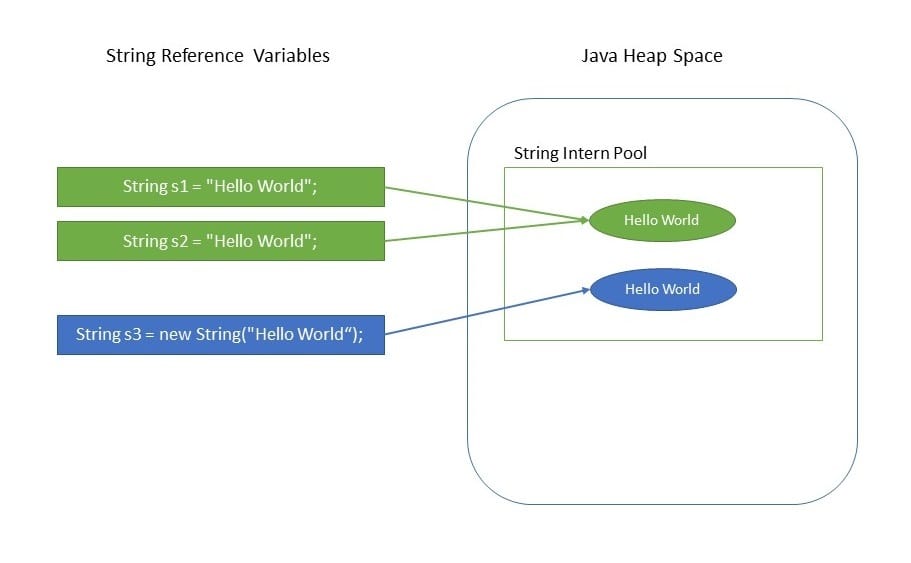Why Are Strings Immutable in Java? Key Factors and Benefits Clarified
Why Are Strings Immutable in Java? Key Factors and Benefits Clarified
Blog Article
Unalterable Strings: A Secret Element in Ensuring Data Consistency and Dependability
In the world of data monitoring, the significance of immutable strings can not be overstated. These imperishable sequences of personalities play a crucial role in maintaining the honesty and precision of info within systems. By maintaining a state of immutability, information uniformity is guaranteed, cultivating a structure of dependability whereupon vital procedures count. The principle of immutable strings transcends simple formality; it is a linchpin in the complex internet of data governance. As we check out the advantages, application techniques, and functional applications of unalterable strings, a more clear image emerges of their important nature in protecting the electronic landscape.
The Idea of Immutable Strings
Unalterable strings, a basic principle in shows, refer to strings that can not be customized as soon as they are created. In essence, once a string worth is appointed, any kind of procedure that shows up to change the string in fact creates a brand-new string. This immutability makes sure data consistency and dependability in applications, as it stops unanticipated changes to the original information.
Benefits in Data Uniformity

Data consistency is crucial in different facets of software development, including data source administration, multi-threaded environments, and dispersed systems (Why are strings immutable in Java?). Unalterable strings add significantly to attaining this consistency by protecting against information corruption because of concurrent accessibility. In situations where multiple processes or threads interact with the very same data simultaneously, immutable strings work as a secure versus race conditions and synchronization issues
In addition, the immutability of strings streamlines debugging and screening processes. With immutable strings, designers can trust that as soon as a string is established, it will certainly stay unmodified, making it simpler to trace the resource of errors and guaranteeing that test cases create constant results. This integrity in data taking care of ultimately causes more durable and steady applications.
Implementing Immutable Strings
Making sure the immutability of strings needs a thoughtful approach to their application in software program advancement. Once a string things is produced, one crucial method is to create string classes in a method that stops modifications. By making strings immutable, developers can boost data uniformity and integrity in their applications.
To implement unalterable strings efficiently, designers need to favor producing brand-new string items as opposed to customizing existing ones. This practice ensures that when a string is assigned a value, it can not be changed. Furthermore, any procedure that shows up to modify the string must create a new string with the desired modifications rather of altering the initial.
Furthermore, using unalterable strings can simplify concurrency management in multi-threaded settings. Because unalterable strings can not be transformed after development, they can be securely shared among multiple threads without the danger of information corruption.
Role in Reliability Guarantee
In software application development, the usage of unalterable explanation strings plays a vital duty in ensuring the reliability of information operations. Immutable strings, when produced, can not be modified, guaranteeing that the data they represent continues to be regular throughout the application's execution. This immutability property gives a degree of guarantee that the information being processed will certainly not be inadvertently changed, resulting in unexpected results or errors in the system.
By incorporating immutable strings right into software application layout, programmers can enhance the dependability of their applications by reducing the dangers associated with mutable data - Why are strings immutable in Java?. Immutable strings help in preventing data corruption or unexpected adjustments, which can be particularly crucial when handling sensitive information or when information integrity is paramount
Furthermore, making use of immutable strings streamlines simultaneous processing, as multiple strings can safely access and share string information without the risk of one string modifying the material while another is reading it. This aspect adds substantially to the total integrity of the software application system, making certain consistent and foreseeable behavior in information dealing with operations.
Applications and System Assimilation
The smooth integration of unalterable strings into various applications and systems is pivotal for making certain robust information consistency and integrity across varied technical environments - Why are strings immutable in Java?. Unalterable strings play a vital role in enhancing the honesty of data exchanges and communications within complex software ecosystems. By integrating immutable strings into applications, programmers can reduce the threats connected with information tampering, unapproved modifications, and unintentional changes, thus strengthening the overall safety and security stance of the system
Immutable strings can improve interoperability between diverse systems by offering a standard style for data representation, making it possible for more reliable information processing and exchange methods throughout interconnected systems. By embracing immutable strings in applications and system integration processes, companies can strengthen their information framework and maintain the dependability and uniformity of their info possessions.
Conclusion
To conclude, unalterable strings play a vital function in maintaining data consistency and integrity in different applications and system combinations. By making sure that strings can not be changed when created, the honesty of data is preserved, minimizing the read what he said risk of incongruities and mistakes. Executing immutable strings can dramatically enhance the reliability of systems, inevitably leading to even more precise and dependable information see this site processing.

Report this page